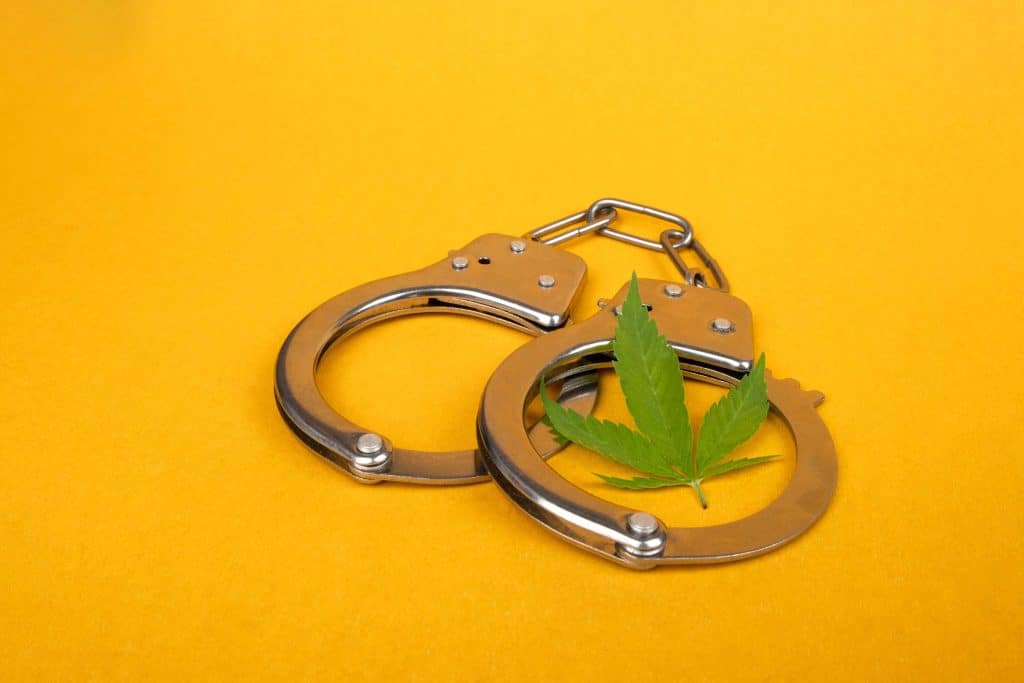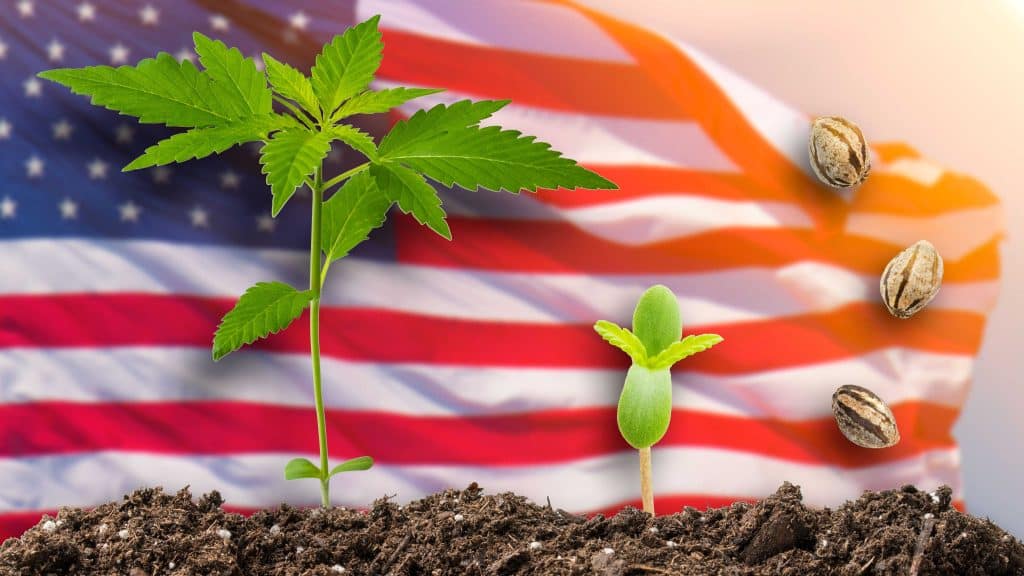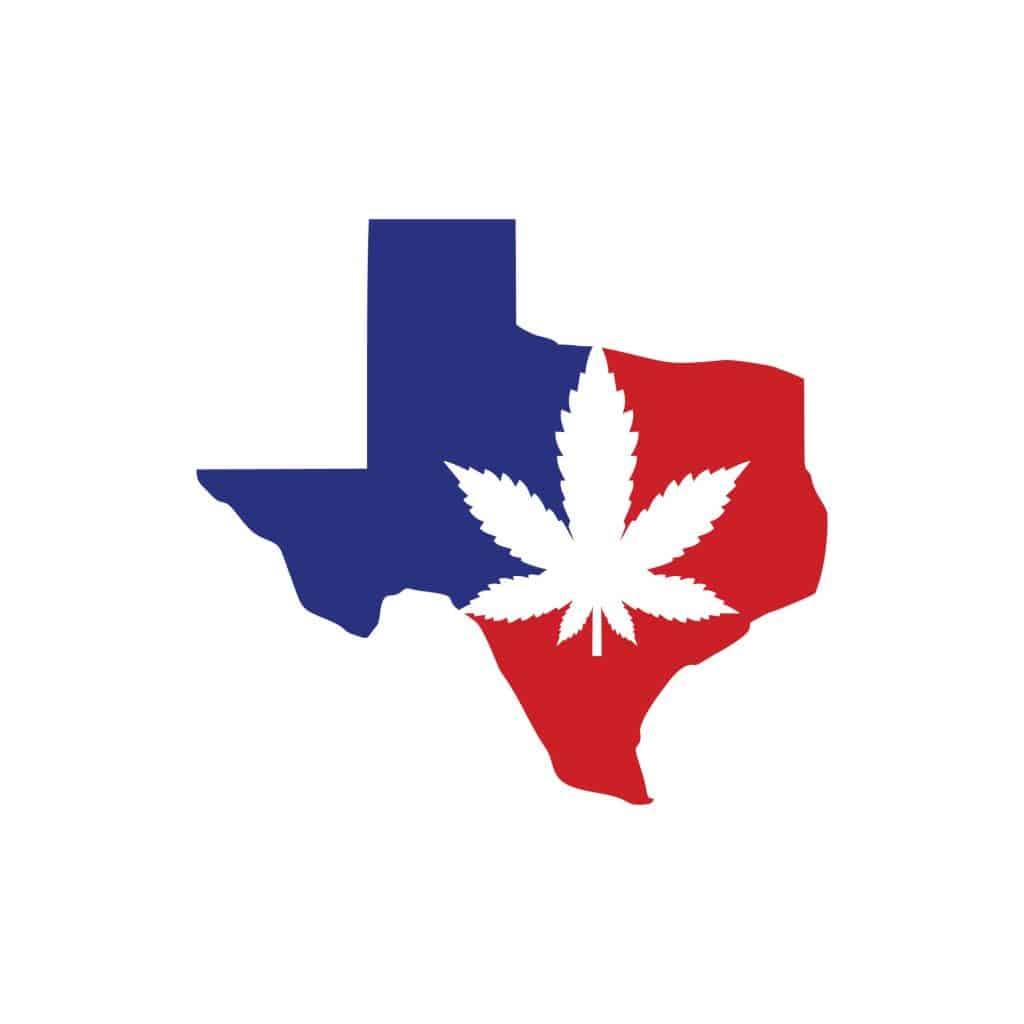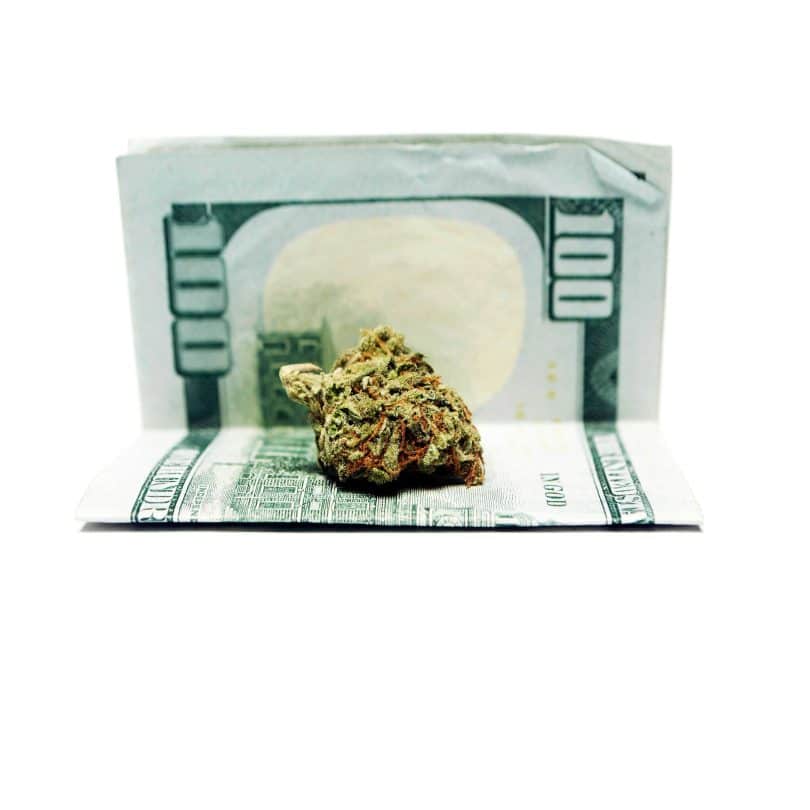Yeah, things are changing, and good riddance to the old rules. Cannabis legalization hasn’t created the nicest or most functional of industries, but it has made it so that less people are penalized for possession and use. Those penalties have cost a lot of people a lot of time and money, and continue to today in many places. Here’s the lowdown on the cost of getting caught with weed.
Thanks for stopping by. Keep up with all the news on cannabis and psychedelics via the Cannadelics Weekly Newsletter, and check out offers for marijuana flowers, vapes, edibles, smoking paraphernalia, and cannabinoid compounds. Pick carefully and enjoy responsibly!
State vs federal
The fact that anyone has to pay out for possessing or using a plant that makes them hungry and happy, is a crime in and of itself to many of us. But that’s the current situation, and even loosening restrictions don’t change a lot of realities about the plant. Legal state or not, I guarantee you you’ll have problems if you try to sell what you grew at home, or if you’re caught moving kilos of said plant across borders.
Regardless of how much or little sense it makes, there are some stark realities to the world of weed, and the biggest one is that for all its lack of danger, and for all the positive benefits it offers, it’s still the #1 reason for drug arrests, and has been for awhile. It’s not meth, or opioids, or cocaine. No, the drug that causes the most arrests, is the one that causes the least harm.
So not only do people pay out, and sometimes have their lives ruined by convictions, its all done for something that was never a threat. This logic has now led to a pardoning by President Biden for all federal simple possession cases, but funny enough…he didn’t offer to repay all those fees that got taken, or offer compensation for incarcerations.
The cost of getting caught with weed varies depending on the specific crime, as well as who the arresting body is. Simple possession garners way less time and money than trafficking charges, but happens way more often. And being caught by the federal government, or a state with harsher restrictions, can net a much different fine and jail term than breaking the law in a place with a legalization or decriminalization measure (legalizations don’t mean no active laws).
What’s the cost of getting caught with weed by the federal government?
When it comes to the cost of getting caught with weed, its way more complicated when looking at states, since each one has its own policy. On the other hand, the federal government works off one policy, and so its easier to get into what the penalties are, and how much people have to pay out.
The main breakdown is between possession charges, sale and supply charges, cultivation charges, distribution charges, and paraphernalia charges. Interestingly enough, the US is most definitely a death penalty country when it comes to drugs, even if it’s not often (or ever) used. According to Norml,

“The sentence of death can be carried out on a defendant who has been found guilty of manufacturing, importing or distributing a controlled substance if the act was committed as part of a continuing criminal enterprise – but only if the defendant is (1) the principal administrator, organizer, or leader of the enterprise or is one of several such principal administrators, organizers, or leaders, and (2) the quantity of the controlled substance is 60,000 kilograms or more of a mixture or substance containing a detectable amount of marijuana, or 60,000 or more marijuana plants, or the if the enterprise received more than $20 million in gross receipts during any 12-month period of its existence.”
Luckily, we really don’t hear about this. The most basic collection is done for simple possession, as this is the most common arrest. How common? We don’t always get numbers for these things, but for 2019, we do. That year, there were a total of 545,602 cannabis arrests for everything from possession to manufacturing to sale; and the grand majority, 500,394 were for simple possession only. Incidentally, in terms of arrests that year, there were more simple possession cannabis arrests, than arrests for violent crimes, which totaled 495,871.
Possession crimes: The first thing to understand is that they aren’t based on amount, but on number of times caught, meaning a joint, and ten grams, can both garner the same punishment. First time offenders face a misdemeanor charge, up to one year in prison, and $1000 in fines. Second time offenders are still charged with a misdemeanor; have a guaranteed 15 days in prison (as a minimum sentence), which can go up to two years; and $2,500 in fines. Third offense or anything after? Now its either a misdemeanor OR a felony; it comes with a minimum requirement of 90 days in prison, which can go up to three years; and $5,000 in fines.
Sale and supply crimes are all felonies, but the penalties vary depending on the amount caught with. Under 50 grams nets a person five years prison time, and a fine of $250,000. 50-99 kilos nets 20 years and $1,000,000 in fines. 100-999 kilos will get you 5-40 years and $500,000 in fines. And 1,000 kilos or more will incur 10 years to life in prison, and set a person back $1,000,000. Let’s remember, this is for plants that grow out of the ground.
So, what if you are just growing plants in the ground? Well, the US government sees cultivation of this plant as a felony at all levels. Under 50 plants lands a person in prison for five years with $250,000 to pay in fines. 50-99 plants garner 20 years and $1,000,000 in fines. 100-999 plants come with 5-40 years and $500,000. And 1,000 plants or more is worth 10 years to life in prison, with $1,000,000 in fines. Distribution follows the same guidelines, unless its in small amounts and not for profit, in which case its treated as possession only.
What about paraphernalia? Stuff that isn’t actually drugs, but used with drugs? You can end up in hot water just for having stuff that doesn’t directly get you high. And, it’s a felony charge, that comes with three years in prison, and surprisingly, no fine. Just to be clear, all of this still stands, even though a pardon was given for previous simple possession cases, and even though the majority (74%) of the country live in places where cannabis is legal in some form or another.

The cost of getting caught with weed in different states
This is less clear cut, as every different state has its own laws. In a legal state, for example, simple possession isn’t a thing anymore. Unless a person is underage, or breaking a law of use, like smoking around a school, adults don’t have to worry about this. There are limits, but generally large enough to make whatever purchase you want at the dispensary, perfectly fine to bring home.
Such states still outlaw illegal sales, manufacturing, and trafficking, for which penalties are very strict, and generally unchanged during legalization processes. As simple possession is where most arrests come from, looking at these penalties tells us the most about what the majority of arrestees, are faced with.
The FBI has a new crime reporting system, which is causing a lot of mayhem for getting accurate numbers. Even so, for 2021, the 31 states without legalization policies made a total of approximately 170,856 arrests for simple possession. Texas led the way with 21.3 thousand, followed by Tennessee with 13.9 thousand, and North Carolina with 12.4 thousand. Georgia was fourth with 9.8 thousand, and Indiana rounded out the top ten states for these arrests, with 6.4 thousand. With the exception of Missouri, which had an increased amount of arrests from 2017 to 2021, going from 2.8 to 9.1 thousand, every other state had a pretty big decrease in these arrests, between those years.
How accurate are these numbers? Well, the National Incident-Based Reporting System relies on law enforcement agencies to participate, and in 2020, only 85% did. These numbers are where the FBI gets it data through the FBI Crime Data Explorer. In 2021, even less reported at 63%. So no, these numbers are probably far lower than the actual numbers of arrest. However this is what we have to go on.
The #1 state for simple possession arrests, is Texas, and in that state, like with the federal government, there is no personal use limit. In Texas, up to two ounces is a misdemeanor, with up to 180 days in prison, and $2,000 in fines. It’s still a misdemeanor at 2-4 ounces, but prison increases to one year, and the fine is doubled to $4,000.
Four ounces to five pounds is now a felony, with a two year minimum prison sentence that goes up to 10 years, and $10,000 in fines. And while the fine amount stays the same, 50-2,000 pounds can net an extra ten years in prison. Over 2,000 pounds and you could be looking at up to 99 years (five-year minimum), and $50,000 in fines.

What about #2 Tennessee? Well, it might rack up plenty of arrests, but this state is a bit less harsh than its predecessor on the list in some ways. For one thing, Tennessee cuts off minor and major penalties at ½ ounce. So long as you don’t go above this amount, its not considered for sale, qualifies as a misdemeanor, incurs up to one year only, and comes with a mandatory fine of $250 for the first incident, and $500 for all following incidences. Past a half ounce, and the crime is a felony, with 1-60 years in prison depending on amount, and up to $200,000 in fines if the maximum of more than 300 pounds is reached.
#3 is North Carolina, and it’s the loosest of the three, at least at first. In fact, in North Carolina, half an ounce or less is a misdemeanor with no jail time, and up to $200 in fines. It’s still a misdemeanor up to 1.5 ounces, but now with 1-45 days in prison, and $1,000 in fines. In North Carolina, up to 10 pounds, though now a felony after 1.5 ounces, still only incurs 3-8 months in prison and $1,000 in fines. From 10 pounds to 10,000+, however, it’s a felony crime, starting with minimum sentences of 25 months, and going up to 222 months, with a top fine of $200,000.
Conclusion
States’ rights are great in some ways, and do provide ways for state governments to get around some federal policy, and to provide local laws relevant to local populations. However, marijuana laws, and the varying cost of getting caught with weed, show a major failure of them. Not only is it silly that a person can get arrested by the federal government for something that’s not a crime in their state, but its just as bad that someone smoking a joint in California, will face nothing compared to a person in Texas, who could serve jail time for the very same act. Be careful where you get caught!
Welcome to our site!! Thanks for joining us at Cannadelics.com; an independent news platform that works to bring you fully-rounded independent reporting of the cannabis and psychedelics industries. Hang out with us frequently to stay up-to-date on everything important, and sign up for the Cannadelics Weekly Newsletter, so you’re always up on what’s going down.









